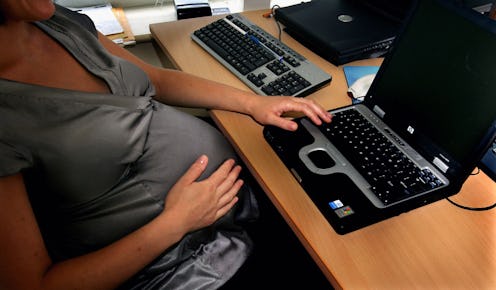Life
Women Are Having Sex With Their Sperm Donors Now
If you're looking for a more personal relationship with your sperm donor than a mere numbered sample, or perhaps are seeking a sample with a more favorable price tag, you're in luck. New donors called "natural inseminators" are replacing sperm banks as preferred methods of non-traditional procreation. The term refers to donors who are willing to deposit their specimen via intercourse at no cost to the recipient. Potential mothers can connect with these inseminators via Facebook groups or online forums in order to form what many find to be a mutually beneficial exchange: women don't have to pay steep prices allotted by sperm banks, while male donors....well, it's still unclear what they're seeking.
Some natural inseminators seem to genuinely want to provide struggling couples and/or women with the gift of life, while others want to ensure the continuation of their genetic lineage. In addition, while most donors prefer a closed visitation agreement, others are more receptive to the idea of maintaining contact with their offspring. A sperm donation thread on VoyForums that allows natural inseminators to advertise on their site demonstrates the variety of motives among donors. Take, for instance, one post on the site from a man named Ozzy:
I prefer only very limited contact with the child. I have never done this before but I like the idea of spreading my genes and am willing to help women or couples that want to have children.
Another anonymous donor expresses a different approach to the natural insemination process:
Am serious about donating and helping you out becoming a mother...feel free to ask me anything...open to co-parenting.
Some of the reasons for donating are even quite touching. A user named Michael writes on the forum:
I'm really looking to help a good person out. I'm just your typical business executive. I work long hours and travel all the time. My motivation to help others have children is geared towards my sister. She was killed by a drunk driver at 18, when she was just starting life. She never got to have a family but looked forward to that day.
But this still doesn't eliminate the presence of more-than-questionable donors like Tony, who writes:
I am married and want to keep it descrete [sic].
(Note to anyone potentially interested in natural inseminators: check to make sure he can spell before selecting him as the genetic parent of your child.)
While the forum offers a few sufficient explanations for choosing to be a natural inseminator, therefore, it also exposes the potential risks of these interactions. As with any predetermined sexual exchange, it's difficult to trust that a donor is a safe, healthy, and respectful sexual partner. It's logical to assume, for instance, that artificial inseminators are a self-selecting group of men who must be willing to have sex with a stranger for free, and therefore may not have the best of intentions when offering up their services. While some artificial inseminators are willing to provide things like STD test results, the process of "natural" insemination does not provide the sense of security that one should expect to receive at a cryobank that thoroughly screens its donors.
There's also reason for donors to be wary of providing their samples the old-fashioned way. Some state laws contend that a licensed physician must be present throughout the process of artificial insemination in order for a man to be absolved of his parental rights. Even after signing a document that waived these rights, for instance, a man in Kansas was ordered to pay child support after donating sperm to a couple with whom he had virtually no contact following the delivery of his sample. Even if natural inseminators agree to have no contact with their biological offspring, therefore, they still run of the risk of being financially responsible for the child in the eyes of the law.
Although procreating via natural inseminators is free in the monetary sense, then, it is also heavily charged with various ethical and emotional concerns. As such, families and/or women seeking children should be careful about who they choose to "father" their child, and how they choose to conceive. While it is certainly a woman's choice if she feels more comfortable creating a baby in a more natural, less sterile environment, it's important to note that just because intercourse is the "natural" form of conception, it is not always the safest or healthiest method, especially in the case of natural inseminators.
It's also important to consider why the free price tag of natural inseminators is so appealing to recipients. Although just one attempt at artificial insemination can cost around $3,000, the average cost of raising a child is infinitely more expensive ($245,000 to be exact.) As such, I would question families that don't have $3,000 to become pregnant with their child, but expect to financially support the child until at least the age of 18. Still, $3,000 is a heavy price to pay for something that more often than not is anticipated to be free, and women should be allowed to explore less taxing options should they so choose. So long as the process of conception is safe and healthy for both partners, then, the "natural" insemination trend portends to be a positive advancement, since it leads to the creation of a highly anticipated and highly coveted human life.
Images: Giphy (2)
